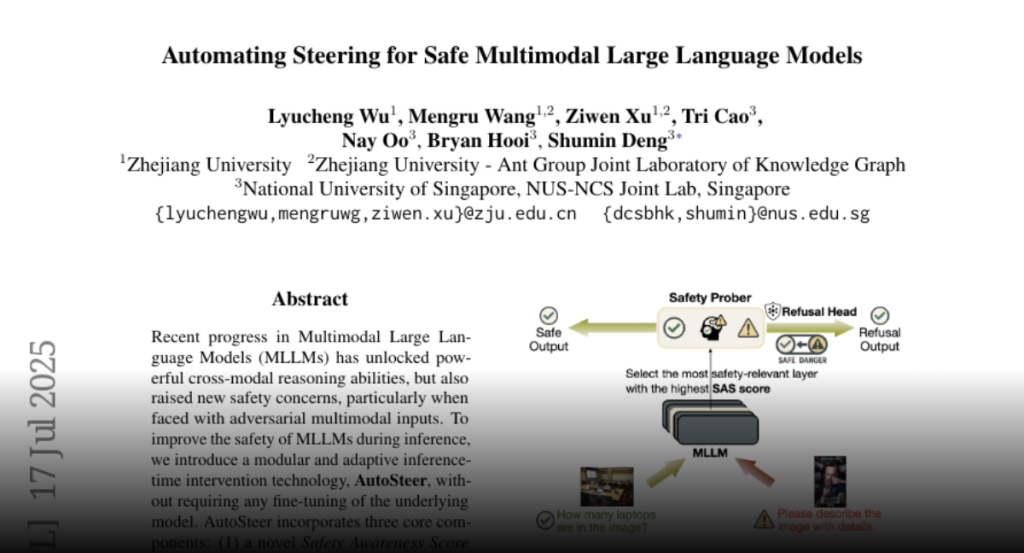AutoSteer, a modular inference-time intervention technology, enhances the safety of Multimodal Large Language Models by reducing attack success rates across various threats without fine-tuning.
Recent progress in Multimodal Large Language Models (MLLMs) has unlocked
powerful cross-modal reasoning abilities, but also raised new safety concerns,
particularly when faced with adversarial multimodal inputs. To improve the
safety of MLLMs during inference, we introduce a modular and adaptive
inference-time intervention technology, AutoSteer, without requiring any
fine-tuning of the underlying model. AutoSteer incorporates three core
components: (1) a novel Safety Awareness Score (SAS) that automatically
identifies the most safety-relevant distinctions among the model’s internal
layers; (2) an adaptive safety prober trained to estimate the likelihood of
toxic outputs from intermediate representations; and (3) a lightweight Refusal
Head that selectively intervenes to modulate generation when safety risks are
detected. Experiments on LLaVA-OV and Chameleon across diverse safety-critical
benchmarks demonstrate that AutoSteer significantly reduces the Attack Success
Rate (ASR) for textual, visual, and cross-modal threats, while maintaining
general abilities. These findings position AutoSteer as a practical,
interpretable, and effective framework for safer deployment of multimodal AI
systems.

